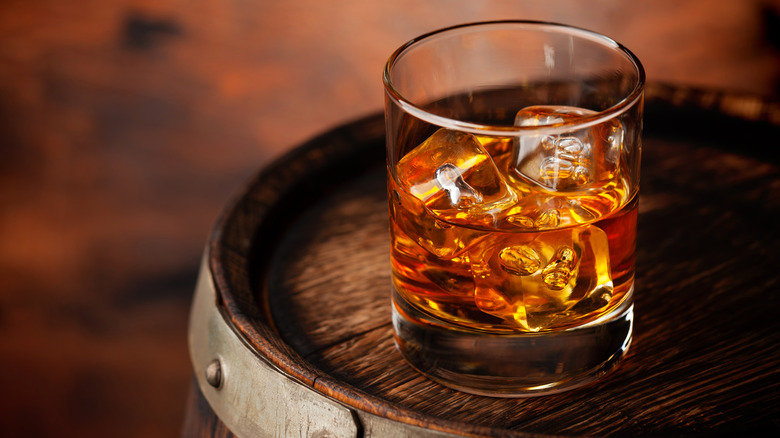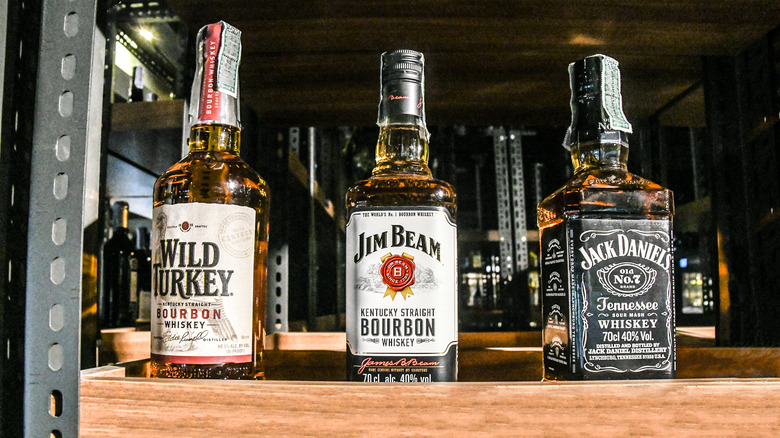Does Bourbon Always Have To Be Made In Kentucky?
When we think of Kentucky, it's often of bluegrass, thoroughbred racing, and that amber elixir we call bourbon. And while it's certainly accurate to say that Kentucky is, in fact, the capital of the bourbon world, wine and whiskey enthusiasts have been known to quibble over details. If, for example, you refer to Prosecco as Champagne, a wine expert is sure to set you straight.
The short answer is that bourbon does not have to be made in Kentucky. Why do some people think it does? For starters, Kentucky produces roughly 95% of the world's bourbon, but the legal definition of bourbon is clear — it doesn't have to be made in Kentucky to be the real deal. According to the U.S. Alcohol and Tobacco Tax and Trade Bureau, bourbon is defined as a whiskey made in the U.S. that contains at least 51% corn, is aged in charred new oak barrels at a maximum alcohol content of 62.5%, and bottled at no more than 80% alcohol by volume. Any U.S.-made whiskey that meets this definition can be labeled as bourbon.
Why is bourbon labeling confusing?
Because there are so many alcoholic beverages that require a product to be made in a particular location to carry a certain designation — think about Scotch whisky or Champagne — we're accustomed to wine and spirits categories that are fairly restrictive.
And if there's a disagreement about whether bourbon has to come from Kentucky, there's one big brand that's often trotted out as an example. Jack Daniel's is conspicuously labeled as "Tennessee Whiskey," rather than a bourbon, a fact that some whiskey enthusiasts believe is evidence of a geographical restriction for the bourbon category. In truth, Jack Daniel's does meet the legal requirements to be labeled as a bourbon. Why doesn't Jack Daniel's call its world-famous whiskey bourbon? It's a marketing choice. By emphasizing its additional step of "charcoal mellowing," Jack Daniel's highlights a point of difference from other whiskeys that also happen to be bourbon. Jack Daniel's could — legally — be labeled as bourbon; the company simply opted to market its product differently.
Bourbon can be made anywhere in the U.S. and there are several fine producers outside of the Bluegrass State distilling amazing bourbon worth exploring.

